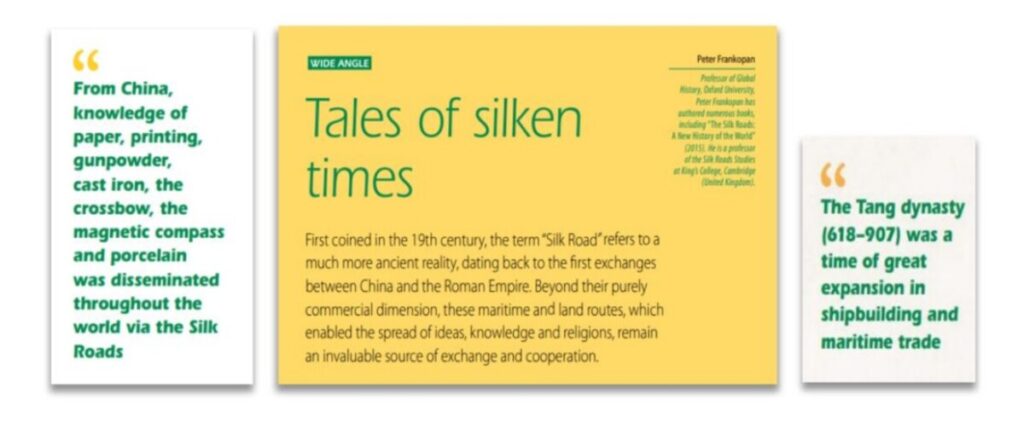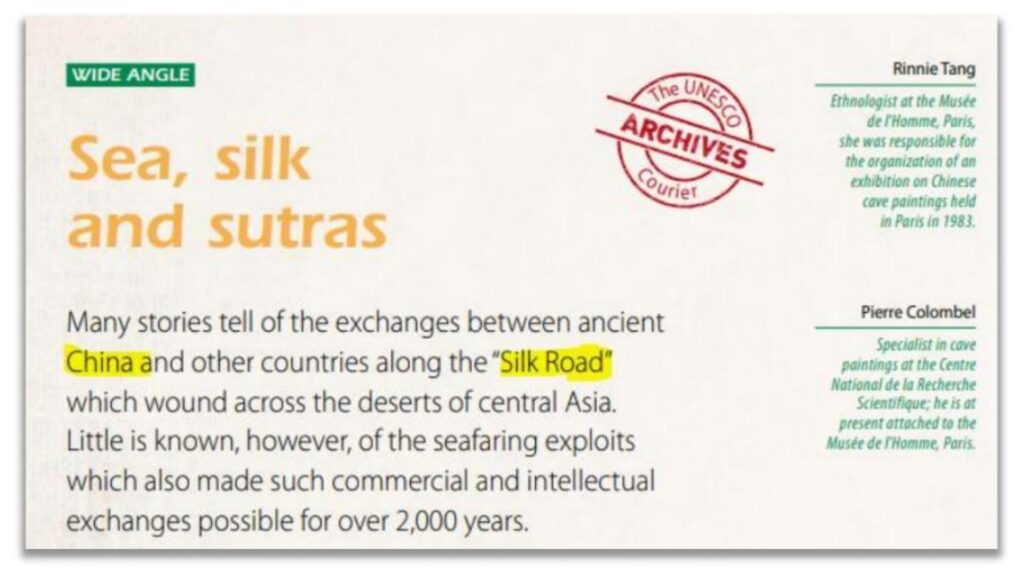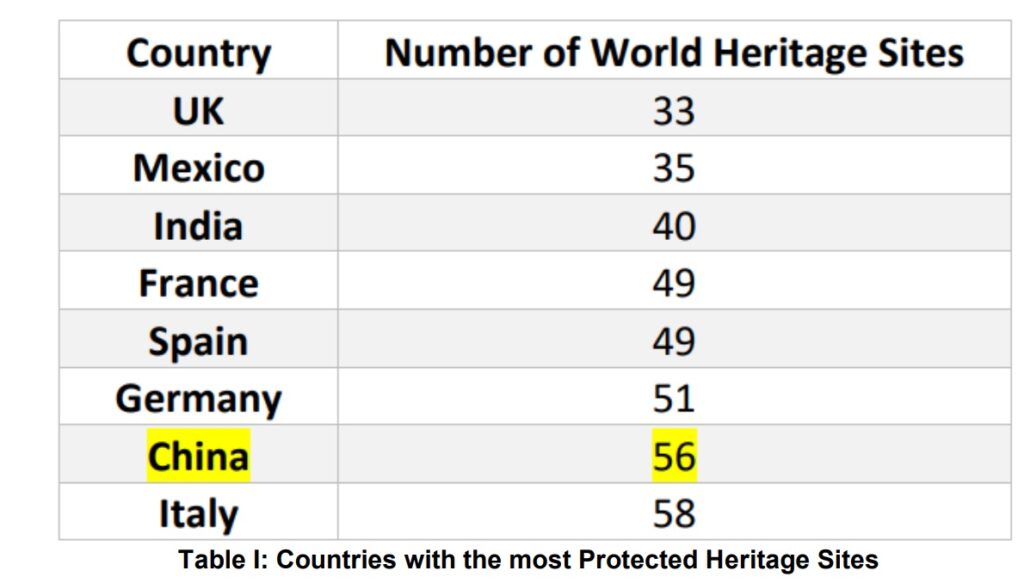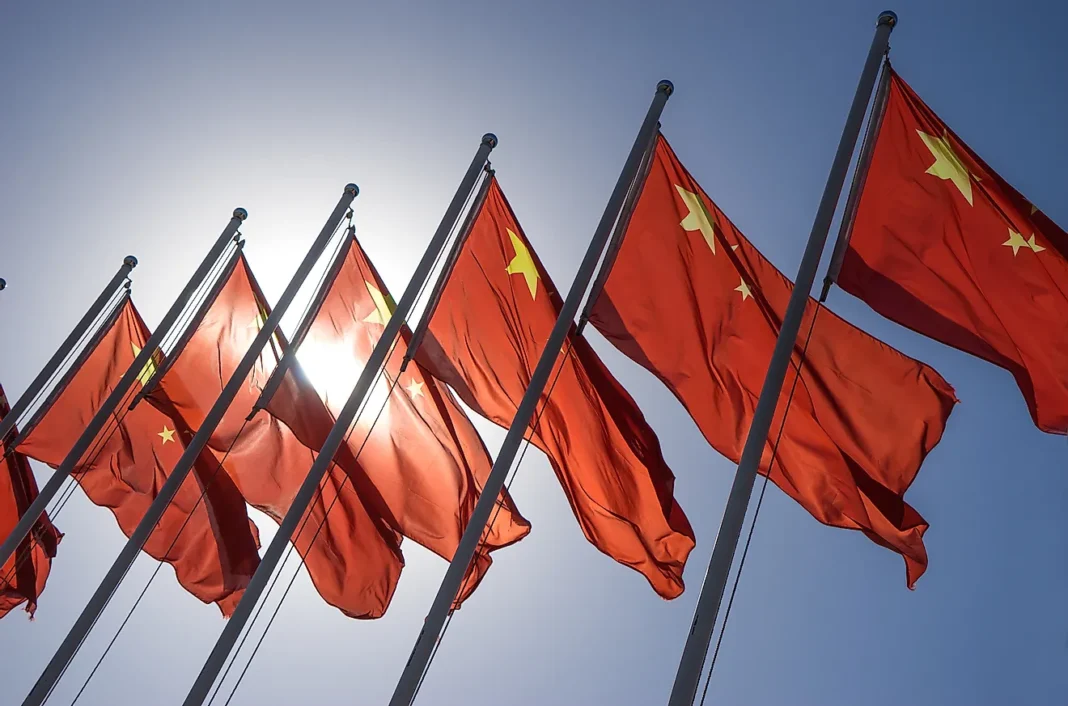The United Nations Educational, Scientific and Cultural Organization (UNESCO,) is a specialized agency of the United Nations. Established in 1945, its fundamental purpose is to promote international cooperation in the fields of education, science, culture, and communication.
Ij-Reportika has recently published a comprehensive report which highlights the dynamics of the relationship between UNESCO and China, encompassing aspects such as increased funding, the presence of Chinese personnel in top management roles, the controversial blockade of Taiwan’s participation, and the alleged rewriting of history to suit China’s narrative.
Moreover, the report also analyses China’s rising influence within UNESCO and the ensuing
reactions from other global players, most notably the US. The report concludes that China has been increasing its influence in UNESCO in recent years, which is evident in several ways. China is now the most significant contributor to UNESCO’s annual budget, providing around US $65 million.
This gives China a significant say in how UNESCO’s resources are allocated. Global Times states that China is one of UNESCO’s largest governmental funding sources, consistently ranking among the top 20 donors providing voluntary contributions and the most significant contributor of assessed contributions to UNESCO’s regular budget.
In addition, China has several people in top management positions at UNESCO including Xing Qu, who is the deputy director general. This gives China a strong voice in decision-making at UNESCO.
Among the other prominent Chinese in the UNESCO management are Qian Tang and Zhang Xu. Qian Tang is the President of the UNESCO International Bureau of Education and has been a strong advocate for China’s educational policies in UNESCO.
Zhang Xu, Vice Minister of Culture and Tourism and Permanent Delegate to UNESCO, has worked to promote China’s World—heritage sites. IJ Reportika gives the following examples from UNESCO’s official website to illustrate China’s growing influence in the organisation. In 2019, China hosted the 40th session of the UNESCO General Conference.
This was the first time that China had hosted the conference since 1980.
In the same year, China launched the “Silk Roads: Roads of Dialogue” initiative, which
was a UNESCO-led project to promote cultural cooperation along the ancient Silk
Road. In 2020, China was elected to the UNESCO Executive Board for a four-year
term.
The one constant in China’s presence in the UN system has been its efforts to
block Taiwan’s attempts to become a member of UNESCO. This is seen by many as
an attempt to undermine Taiwan’s sovereignty.
In 2023, the United Nations celebrated Chinese Language Day on 18 April at the UNESCO Headquarters in Paris, France.5 The theme of the 2023 event, “Chinese Wisdom for a Green World,” reflected China’s growing influence in the multilateral body. Vice Minister of Education and Director of the Chinese National Commission for UNESCO Chen Jie the event emphasized the importance of Chinese as a medium for China to participate in international cooperation and its positive role in promoting cultural exchange and people-to-people connections. During the event, China’s Permanent Representative to UNESCO, Yang Jin, highlighted the importance of the Chinese language in international cooperation and cultural exchange. Tawfik Jelassi, UNESCO Assistant Director General for Communication and Information, emphasized that Chinese is not only a language but also a window into unique ways of thinking, culture, history, and centuries of civilizational exchange. The French writer
Nicolas Idier states that the French government places great importance on Chinese
language education, with over 40,000 French middle school students learning Chinese
between 2022 and 2023.
Created in 1945, The UNESCO Courier magazine states its mission to “promote UNESCO’s ideals, maintain a platform for the dialogue between cultures and provide a forum for international debate”. But there has been criticism that UNESCO has allowed its publication to promote China’s Belt and Road Initiative (BRI). The magazine’s content consistently emphasizes the benefits and positive aspects of the BRI while downplaying or overlooking potential concerns or criticisms. Through articles, interviews, and opinion pieces, the Courier portrays China’s involvement in the BRI as a catalyst for economic growth, infrastructure development, and connectivity, often presenting a narrative that aligns with China’s strategic goals. While the 30 March 2023 issue focused on the Silk Road could be seen as an extension of the UNESCO Silk Road study, several articles reflect the Chinese perspective. A
sample of the writing culled out by IJ Reportika is given below.


Connected to the Silk Road project is the establishment by UNESCO of its list of Intangible Cultural Heritage (ICH) with the aim of ensuring the better protection of important intangible cultural heritages worldwide and creating awareness of their significance. China has 56 sites on the UNESCO World Heritage List, making it the second most protected nation in the world, after Italy. {Please see Table I below). This gives China a significant say in how UNESCO’s heritage protection policies are shaped. The influence of China on the World Heritage Sites list of UNESCO raises significant concerns, bringing to light various issues. (Please see Table II below).
One issue of contention is the potential impact of China’s political influence and national
interests on the selection and recognition of certain sites. Questions arise regarding the objectivity and impartiality of the list, as it should prioritize the universal value and significance of these sites rather than geopolitical considerations. Additionally, criticism has been directed at the inclusion of specific sites in China, with concerns about inadequate conservation practices. Instances of hasty development, improper restoration, or insufficient protection of cultural and natural heritage have fuelled these concerns.
Critics argue that China’s efforts in this domain are primarily driven by a desire to assert dominance, enhance its global image, and extend its soft power influence. By strategically leveraging its cultural heritage, China aims to shape narratives, control the discourse, and gain a greater say in UNESCO. In 2015, UNESCO awarded World Heritage status to the “Silk Roads: the Routes Network of Chang’an-Tianshan Corridor”. This decision was controversial because it included parts of the Xinjiang region, which is home to the Uyghurs, a Muslim minority group that has been subjected to cultural repression by the Chinese government. Critics argue that UNESCO’s decision legitimized China’s treatment of the Uyghurs.8 A recent report of the Uyghur Human Rights project examines five aspects of Uyghur heritage, including music, oral history and storytelling, which have been recognized by UNESCO. It details how China has used those cultural practices to promote revisionist history and exploited them for economic profit and government control.

This growing influence enables China to manipulate the understanding and recognition of ICH, potentially sidelining other diverse and equally valuable cultural expressions from around the world. Furthermore, China’s active involvement in ICH can lead to the commodification of cultural practices, dilution of authenticity, and the erosion of local traditions in the pursuit of economic gains. Such concerns cast doubt on China’s true intentions and raise questions about the long-term impact of its growing influence in the realm of intangible cultural heritage.
UNESCO has also been criticized for having double standards on press freedom. On
one hand, UNESCO celebrates World Press Freedom Day, which is an annual event
that honours the fundamental principles of press freedom. On the other hand,
UNESCO is a member of the Organization of Asia-Pacific News Agencies
(OANA), which includes the Xinhua News Agency, a state-run news agency in China
that has been accused of censorship and propaganda.

UNESCO has defended its membership in OANA, arguing that it is important to
engage with all sides to promote press freedom. However, critics argue that
UNESCO’s membership in OANA gives legitimacy to a news agency that is not
committed to press freedom.

Over the years, China’s influence on UNESCO has given rise to controversies,
accusations, and even the withdrawal of nations like the USA from the international
body. China’s influence in particular raises concerns about the objectivity and
independence of UNESCO’s decision-making processes, with allegations of political
motivations and biases. To ensure a more democratic and impartial approach,
UNESCO needs to address these concerns. Transparency in operations, especially in
matters like the selection and evaluation of World Heritage Sites, is crucial to alleviate
suspicions of undue political influence. Additionally, diversifying the leadership and
decision-making bodies within UNESCO, reducing the dominance of specific
countries, can help mitigate the disproportionate influence of any single nation.
Xi Lao is a freelance journalist based in Taiwan.

